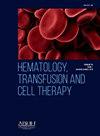开发镰状细胞病管理的治疗决策工具:管理、监测、实现框架
IF 1.8
Q3 HEMATOLOGY
引用次数: 0
摘要
目的镰状细胞病(SCD)的勉励性疗法在过去 7 年中有所增加,这突出表明需要标准化和可量化的标志物来监测 SCD、病情进展和治疗反应。全球镰状细胞病专家对通常与 SCD 相关并发症有关的器官系统有着广泛的了解,他们参加了一系列反复召开的咨询委员会会议,以确定和优先考虑 SCD 进展的实验室、临床和定性指标,并研究如何将这些指标用于治疗决策。这一系列活动旨在:1)确定 SCD 治疗的量化目标;2)确定在 SCD 临床实践中应用目标导向决策时尚未满足的需求和障碍;3)引入、完善和验证 SCD 治疗决策框架,并在框架中填充具体的治疗目标。为了帮助在临床实践中实施 SCD 治疗决策框架,通过虚拟调查对确定的参数进行了优先排序,并区分了儿科或成人实施情况。结果顾问们重点关注了患者和临床医生之间共同决策的重要性,包括生物、社会和心理层面在内的治疗目标,以及个体患者及其经历的独特性。顾问们建议,SCD 治疗决策框架应包括定期评估和重新评估,并建议监测三个关键领域:疾病活动指标、器官损伤指标和健康相关生活质量(HRQoL)指标。顾问们就管理、监测、执行(MMR)框架达成了一致意见:1) 管理:是否对 SCD 关键参数进行了管理?2) 监控:是否对疾病进展的关键方面进行监控,以防止器官并发症的进一步恶化?3)实现:患者是否能够发挥其潜能?MMR 框架要求临床医生在临床中同时考虑和重新评估这三大支柱,以评估患者的治疗情况。顾问们确定了主要评估标准:SCD 参数(血液学参数、溶血标志物、是否出现血管闭塞性发作、是否出现急性胸部综合征、输血负担、感染风险);器官并发症(肾、心血管、肺、神经、视网膜、骨坏死、肝胆、内分泌[生长发育]、腿部溃疡)的存在和严重程度,以及共同决策(患者治疗目标、HRQoL、疼痛、疲劳、抑郁、焦虑、护理过渡、生殖和生育、专业发展)。讨论统一 SCD 治疗措施、结果和目标可改善 SCD 管理和患者预后。MMR框架还可用于指导临床试验的设计。我们计划与全球 SCD 专家合作,不断完善 MMR 框架,使其适用于全球医疗保健系统,根据发育阶段和/或疾病状态应用于患者,并在临床实践中进行试点。本文章由计算机程序翻译,如有差异,请以英文原文为准。
DEVELOPMENT OF A TREATMENT DECISION-MAKING TOOL FOR SICKLE CELL DISEASE MANAGEMENT: THE MANAGE, MONITOR, REALIZE FRAMEWORK
Objective
Remittive therapies for sickle cell disease (SCD) have increased over the past 7 years highlighting the need for standardized and quantifiable markers to monitor SCD, progression and treatment response. The aim was to develop an SCD treatment-decision framework that is well-defined, quantifiable, adaptable, personalizable, and clinically relevant for every stage of the individual patient journey.
Methods
SCD experts worldwide, with extensive knowledge of organ systems commonly associated with SCD-related complications participated in an iterative series of advisory boards to identify and prioritize laboratory, clinical, and qualitative measures of SCD progression to see how these measures should be used for treatment decision making. The series were designed to 1) determine quantifiable goals for SCD treatment; 2) identify unmet needs and barriers to applying goal-oriented decision making in SCD clinical practice; and 3) introduce, refine, and validate an SCD treatment-decision framework and populate the framework with specific treatment targets. To aid implementation of a SCD treatment-decision framework in clinical practice, parameters identified were prioritized using a virtual survey and differentiated for pediatric or adult implementation.
Results
Advisors focused on the significance of shared decision making between patient and clinician, treatment goals including of biological, social, and psychological dimensions, and the uniqueness of individual patients and their experiences. Advisors recommended that an SCD treatment-decision framework should invoke regular assessment, re-assessment, and proposed the monitoring of three key areas: markers of disease activity, markers of organ damage, and measures of health-related quality of life (HRQoL). Advisors agreed on the manage, monitor, perform (MMR) framework: 1) Manage: Are key SCD parameters managed? 2) Monitor: Are key aspects of disease progression monitored to prevent further organ complications? 3) Realize: Is the patient able to fulfill their potential? The MMR framework requires clinicians to consider and reassess the three pillars in parallel in the clinic to assess patient treatment. Advisors identified key assessment criteria: SCD parameters (hematological parameters, markers of hemolysis, presence of vaso-occlusive episodes, presence of acute chest syndrome, transfusion burden, risk of infection); presence and severity of organ complications (renal, cardiovascular, pulmonary, neurological, retinal, osteonecrosis, hepatobiliary, endocrine [growth and development], leg ulcers), and shared decision making (patient treatment goals, HRQoL, pain, fatigue, depression, anxiety, transition of care, reproduction and fertility, professional development).
Discussion
Unity on SCD treatment measures, outcomes, and goals could improve SCD management and patient outcomes.
Conclusions
The finalized MMR framework should aim to achieve the best clinical standard of care and address worldwide regional limitations. The MMR framework could also be used to guide the design of clinical trials. We plan to continually refine the MMR framework, in partnership with global SCD experts, to allow for customization to worldwide healthcare systems, application to patients based on developmental stage and/or disease status, and to allow piloting in clinical practice.
求助全文
通过发布文献求助,成功后即可免费获取论文全文。
去求助
来源期刊

Hematology, Transfusion and Cell Therapy
Multiple-
CiteScore
2.40
自引率
4.80%
发文量
1419
审稿时长
30 weeks
 求助内容:
求助内容: 应助结果提醒方式:
应助结果提醒方式:


